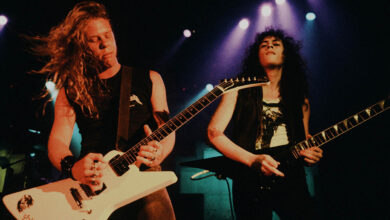Heart, 65 Years Old, Performs “Alone” Live At Royal Albert Hall, Surpassing Most Of Today’s Talent
When Heart took the stage at London’s prestigious Royal Albert Hall in June 2016, it was more than just another concert—it was a defining chapter in their legacy. Accompanied by the Royal Philharmonic Orchestra, this show marked their debut at the legendary venue, where classical grandeur met rock ferocity. The orchestra elevated their sound, infusing familiar anthems like “Alone,” “Barracuda,” and “These Dreams” with cinematic scope and emotional resonance. Ann Wilson, then in her sixties, stunned the audience with soaring vocals that defied age and expectation, especially during the climactic moments of “Alone.”
This unforgettable night was immortalized in the release titled “Live at the Royal Albert Hall with the Royal Philharmonic Orchestra,” which hit shelves in December 2016. The live album was praised for its seamless fusion of classical and rock elements, illustrating the band’s versatility and creative ambition. Critics and fans alike applauded Heart’s willingness to explore new sonic territories while preserving the intensity and authenticity of their original sound. It offered longtime listeners a fresh take on familiar tracks while attracting a new audience with its orchestral flair.
For Ann and Nancy Wilson, founders and creative forces behind Heart, this performance represented a culmination of decades of perseverance, reinvention, and artistic risk-taking. Since the 1970s, the Wilson sisters have broken barriers in rock music, delivering hits that combined searing guitars with emotionally rich lyrics. Songs like “Crazy on You” and “Magic Man” helped establish them as pioneers, blending vulnerability with power in a genre dominated by men. Their sharp lyrical themes often reflected personal struggles and cultural commentary, anchoring their music in authenticity.
Among their most impactful songs, “Barracuda” stands out as an uncompromising response to industry sexism and exploitation. Sparked by a specific incident involving misinformation about the sisters, the track burns with righteous anger and a fierce, unrelenting guitar riff. The riff itself was inspired by Nazareth’s interpretation of Joni Mitchell’s “This Flight Tonight,” turning a moment of frustration into one of Heart’s most enduring rock statements. In the orchestral setting of Royal Albert Hall, the track’s fury gained a new kind of grandeur, layering classical instruments over that iconic riff.
Despite the celebratory nature of the 2016 performance, it came at a delicate time for the Wilson sisters. A personal conflict between Ann’s husband and Nancy’s children caused a painful divide between them shortly after the concert. Though the band’s future became uncertain, the unity on display that night was undeniable. The passion and chemistry between Ann and Nancy, heightened by the orchestral arrangement and emotional weight of the venue, captured the essence of what made Heart such a vital presence in rock history.
The addition of the Royal Philharmonic Orchestra transformed Heart’s catalog into something almost operatic. The strings, brass, and percussion amplified the emotional depth of songs that were already rich with feeling. From the haunting softness of “These Dreams” to the urgent cry of “What About Love,” the band demonstrated their ability to evolve without sacrificing their core identity. Fans left the venue knowing they had witnessed something far beyond a standard rock show—it was a masterclass in musical collaboration.
One of the evening’s most unforgettable moments came during “Alone,” where Ann Wilson’s voice swelled with both precision and passion. Just when the audience thought the song had reached its emotional peak, a surprise twist unfolded. Ann invited a young vocalist from the Royal Academy of Music to join her mid-song, resulting in a breathtaking duet. Their harmonies soared through the historic venue, bringing a fresh vulnerability to the already powerful ballad and leaving the crowd visibly moved.
The duet quickly gained traction online after the concert, with footage spreading rapidly across social platforms and music forums. Viewers from around the world praised the young singer’s poise and the emotional synergy she shared with Ann onstage. It became more than a performance—it became a symbol of Heart’s commitment to fostering new talent and their ability to bridge generations through music. The moment encapsulated everything that makes live music magical: spontaneity, connection, and shared passion.
In interviews following the release of the live album, Ann and Nancy reflected on the experience with reverence. They spoke about the challenges of preparing for an orchestral concert and the thrill of hearing their music come alive in such a grand and nuanced setting. Both sisters acknowledged that it required them to reimagine their catalog and adapt to an entirely different musical context—one that tested and expanded their artistry. The results, however, were more than worth it.
Today, the Royal Albert Hall concert is considered a career milestone for Heart. It stands as proof of their willingness to push artistic boundaries while remaining grounded in the elements that first drew fans to their music. The orchestra didn’t overshadow the band—it amplified them. Ann’s voice, still defiant and soaring after decades in the industry, combined with Nancy’s expressive guitar work to remind everyone why Heart remains one of rock’s most enduring and influential acts.





